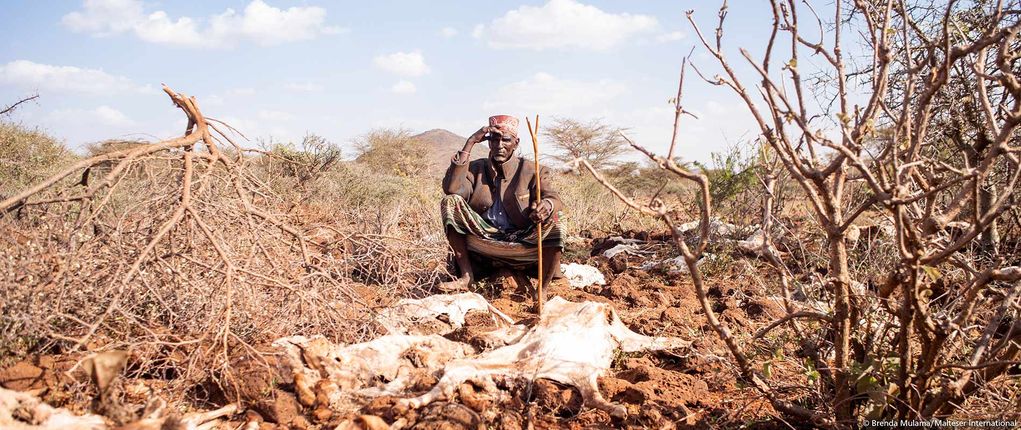
If it doesn't rain soon, people will die
Since 2020, there has been insufficient rainfall in some parts of Kenya. The fourth rainy season in a row failed to occur. Already 1.5 million animals have died in the East African country and more than four million people are in need of aid. We distribute drinking water, cash, animal feed and nutrition to pastoralists in Kenya.
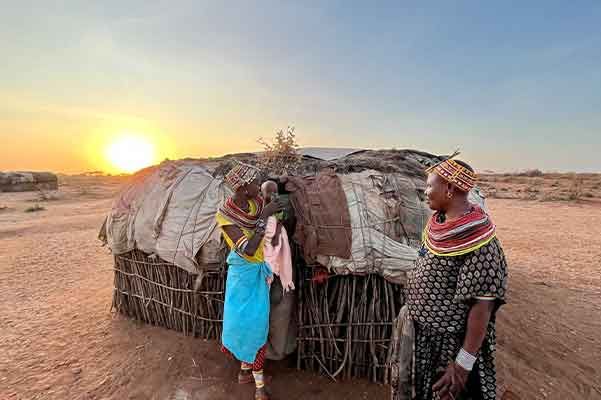
Looking into the face of 50-year-old Ntitoya Mirgichan, one would not think that she is currently experiencing the worst drought in 70 years in her homeland. That's because Ms. Mirgichan radiates enormous strength and confidence. And most of the time, there is a smile on her face. But when she begins to tell of her circumstances, she turns serious. "There are only four animals left from my herd and they are so weak that they don't bring in any money. I used to get more than 2,500 Kenyan shillings (about 20 euros) for a goat, but now I barely get 1,000. At the same time, food prices have risen so much that I can barely feed my family for a day on this little money."
Here, thousands of kilometers away from Ukraine, in northern Kenya, people are suffering from price increases in the world market due to the war: prices for cooking oil in Kenya have risen by more than 50 percent since last year, and people have to pay around 40 percent more for wheat. Because of high gasoline prices, transportation costs are also rising rapidly.
Added to this is the climate crisis. Although the people affected themselves only produce a very small amount of CO2 emissions through their way of life, the effects are clearly felt by people like Ntitoya Mirgichan.
Gloomy forecast: rain is not in sight
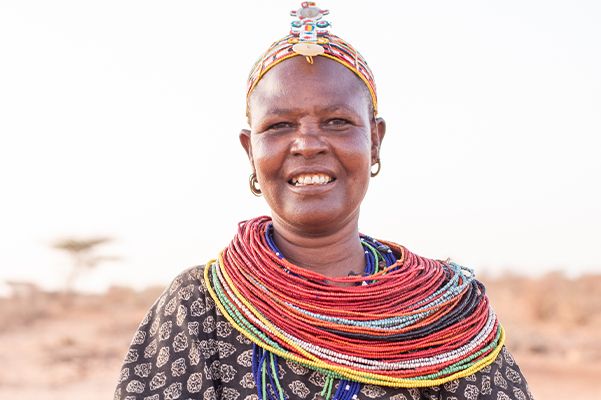
"If it doesn't rain soon, after the animals, the people will die," says Ms. Mirgichan. Some time ago, her husband died. He died of starvation, she reports. Her herd of goats and sheep, her livelihood, is virtually gone. "But with the animal feed I got from Malteser International, I see that the animals are doing better every day. They give milk again, and have strength to move again. Without this animal feed they would have died," Mrs. Mirgichan is sure. Four rainy seasons have now failed in her home in Marsabit County, in northern Kenya. And the forecasts for the coming months also look bleak. Rain is still not in sight.
In Kenya alone, around 1.5 million animals have already died in recent months. The carcasses are rotting by the roadside, covered with the red soil. More than four million people in Kenya are dependent on aid because they can no longer feed themselves.
Enormous burden: an uncertain future
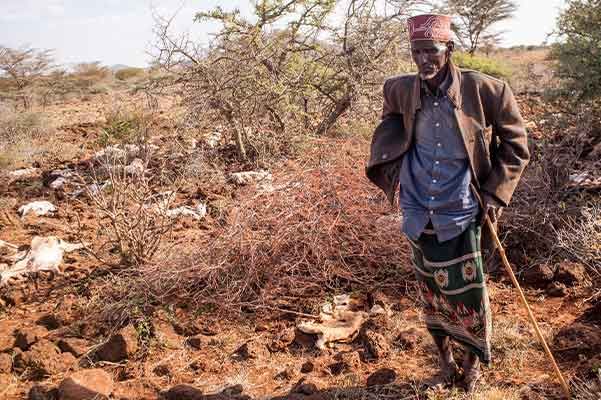
It's the first time Roba Bora has returned to this place since his personal disaster struck. Here, in Hurri Hills, almost his entire herd perished in just one night in January. On January 17, there was a sudden change in weather and a cold snap. Thousands of animals died; of Mr. Bora's 867 animals only 16 remained alive. Mr. Bora is 70 years old and has experienced many things in the past decades. But he says it has never been as bad as it is now. "Herders used to come here to Hurri Hills from far away because the soil was so fertile. Today, it looks like the Chalbi Desert here. I have started taking chewing tobacco because I am so stressed. I don't sleep anymore because I don't know how to go on. My brother starved to death. Now I am also responsible for his children. I don't know how to pay school fees for my four children anymore."
To support people like Roba Bora and Ntitoya Mirgichan in this extreme emergency, we have distributed drinking water, cash, animal feed, food such as oil, tea, salt, sugar and cereals to 1,200 households.
Our goal: sustainable support
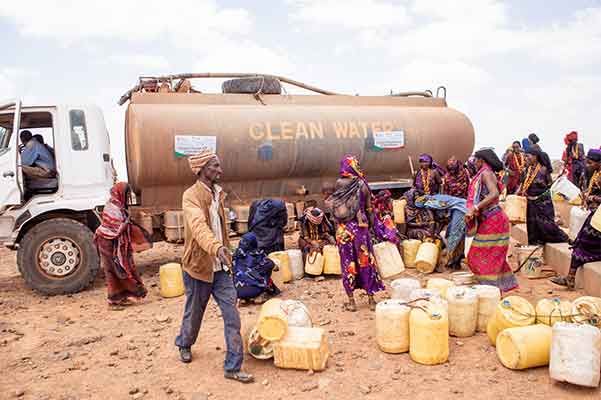
As of August, another 800 families will be assisted. "It is important for us to be able to help people in the long term. To ensure this, we will support them in a next step, together with our local partner, to restructure their livestock farming. It is important that they keep and breed more resilient animals in their herds that require less water. Livestock marketing also needs to become more professional so that livestock farmers can build up a small buffer. They basically have to adapt to the changing conditions, otherwise this area will become uninhabitable for them in the near future," says Roland Hansen, head of the Africa department.
Due to rising prices, especially for food and gasoline, we are also currently able to reach fewer and fewer people with our aid. Because the more expensive the relief supplies and transport become, the less we can get to the people affected by the drought.
That is why we are also dependent on your help: Please support us in our work in northern Kenya and donate for the people in need.








